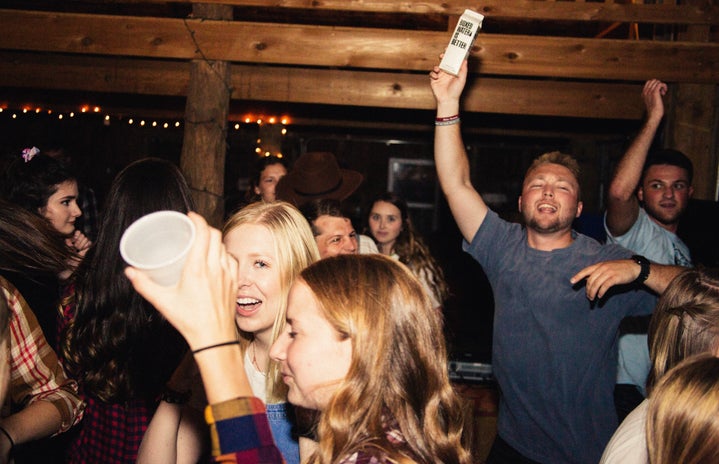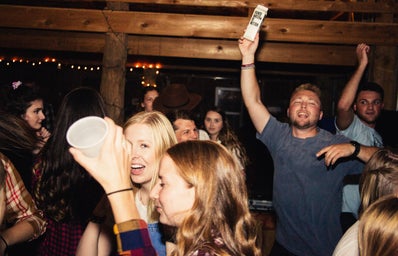In light of a surge of drink spiking in nightclubs since they reopened in July earlier this year, a national movement of boycotts is taking place. These boycotts are a double-edged response to not only increased reports of drink-spiking, but also in response to reports of women being physically injected with substances in Nottingham, Glasgow, Edinburgh, and Dundee.
The movement was catalysed by reports in Nottingham of a few women finding puncture wounds on their bodies, coupled with blacking out during nights out with friends. Shortly after, an Instagram page dedicated to protesting against these events emerged orientated around–but not limited to–nightclubs and bars with a large income from students, sometimes affiliated with university student nights. Only a few weeks later was this anger echoed across the country, with what started as Girls Night In Nottingham (@girlsnightinnottingham) now a nationwide movement.
A short scroll through any of the dedicated Instagram pages and you can see that they are flooded (at an alarming rate) with anecdotal evidence of women blacking out, waking up in the hospital, or experiencing strange–and sometimes very serious–symptoms of foaming at the mouth, nausea, numbness in their legs or significant pain in the abdomen or lower back. In light of this, the dedicated Instagram pages for the ‘girls night in’ of each city have asked its followers to vote on which specific date a boycott will take place where nightclubs and bars will not be attended.
In London, venues will be boycotted on the 5th November, on the 27th October in Manchester, and the 4th November in Norwich amongst other cities. It is important to note that despite the gender-specific title of the movement, organizers stress that this is not limited to just women, and anyone of any identity who resonates with the issue at hand is welcomed to take part in the boycott. With this in mind, some organizers have even changed the names of their Instagram handles to emphasize the exclusivity of the movement. For example, the page dedicated to the boycott in Birmingham is now found by @brumnightin.
Above all else, it cannot be denied how strong a movement has developed in such a short space of time. This is a passionate testimony to the feelings of many young women at this time. With this in mind, it is saddening that this boycott alone may not provoke the necessary change from those that have the power to do so.
Unfortunately, the promoters and managers of nightclubs and bars and other venues in the hospitality are probably not seeing this discourse online (which is largely centred around Instagram). As someone who has worked in hospitality for several years, I can assume that managers will arrive at the conclusion that they have simply had a bad night of sales that can easily be compensated for on another night. Effectively, the venues being boycotted will be blissfully unaware that they are part of a boycott, and even more detached from the anger and fear that many young women are feeling at this time. This is worsened by the tendency of policymakers to suggest that the safety of women can be solved by the physical presence of men of authority. In light of the details of the murder of Sarah Everard entering the public domain, I think many women will agree with me that this is not the case, nor a long-term solution.
Rather than more pat-downs by nightclub bouncers, or pigeonholing plain-clothes police officers into venues, this surge in spiking cannot be solved without cultural change. And that starts with the issue being taken seriously by those at the top, rather than being excused as a seasonal side effect of freshers’ events at universities.
This year has been a stark reminder of how unsafe women are, the Plymouth gunman Jake Davison and the murder of teacher, Sabina Nessa, being two of a sobering collection of examples. In such a pinnacle moment of cultural and legislative change regarding the safety of women, there are only so many times policymakers can ignore the basic human right for women to feel safe.
In addition to the calendar of boycotts happening over the next few weeks, phoning and emailing MPs and nightclubs and bars is a great way to raise awareness of the Girls Night In movement. Here are some links to some petitions you may also be interested in…
Urgent review into drink spiking in the UK:
www.change.org/p/urgent-review-into-drink-spiking-in-the-uk
Make it a legal requirement for nightclubs to thoroughly search guests on entry:
https://petition.parliament.uk/petitions/598986
Fund free drink-spiking test kits for all bars:


